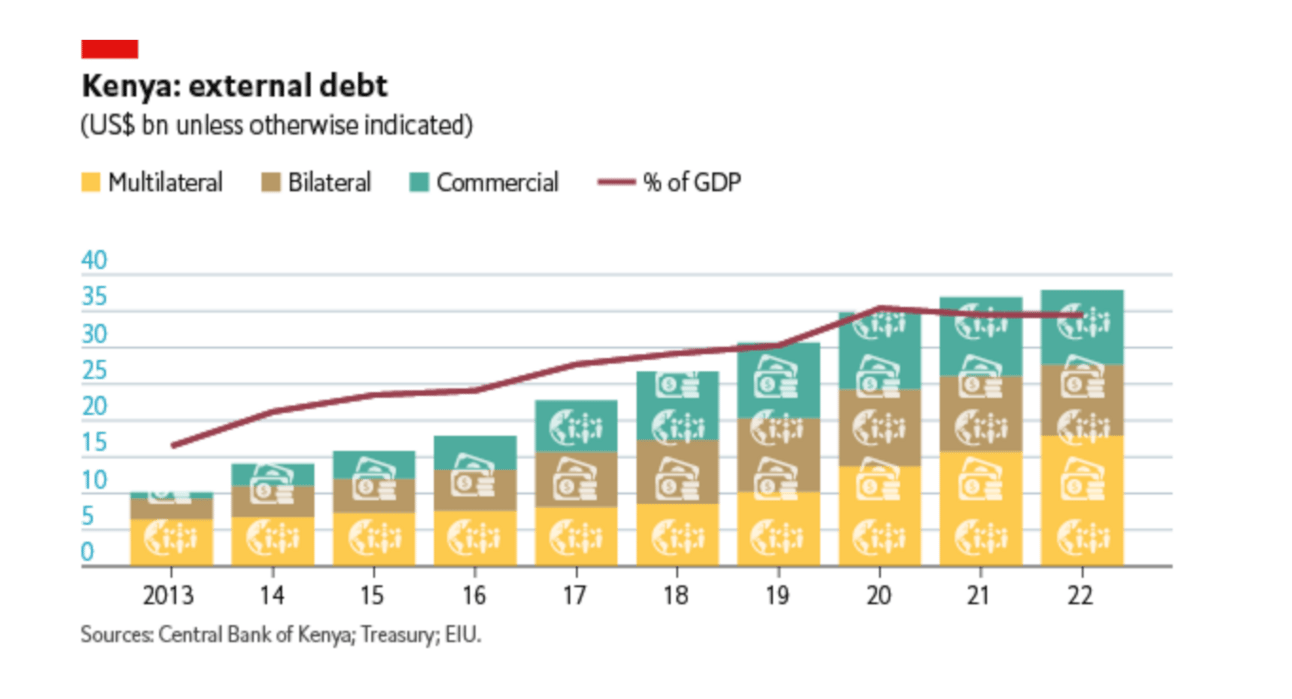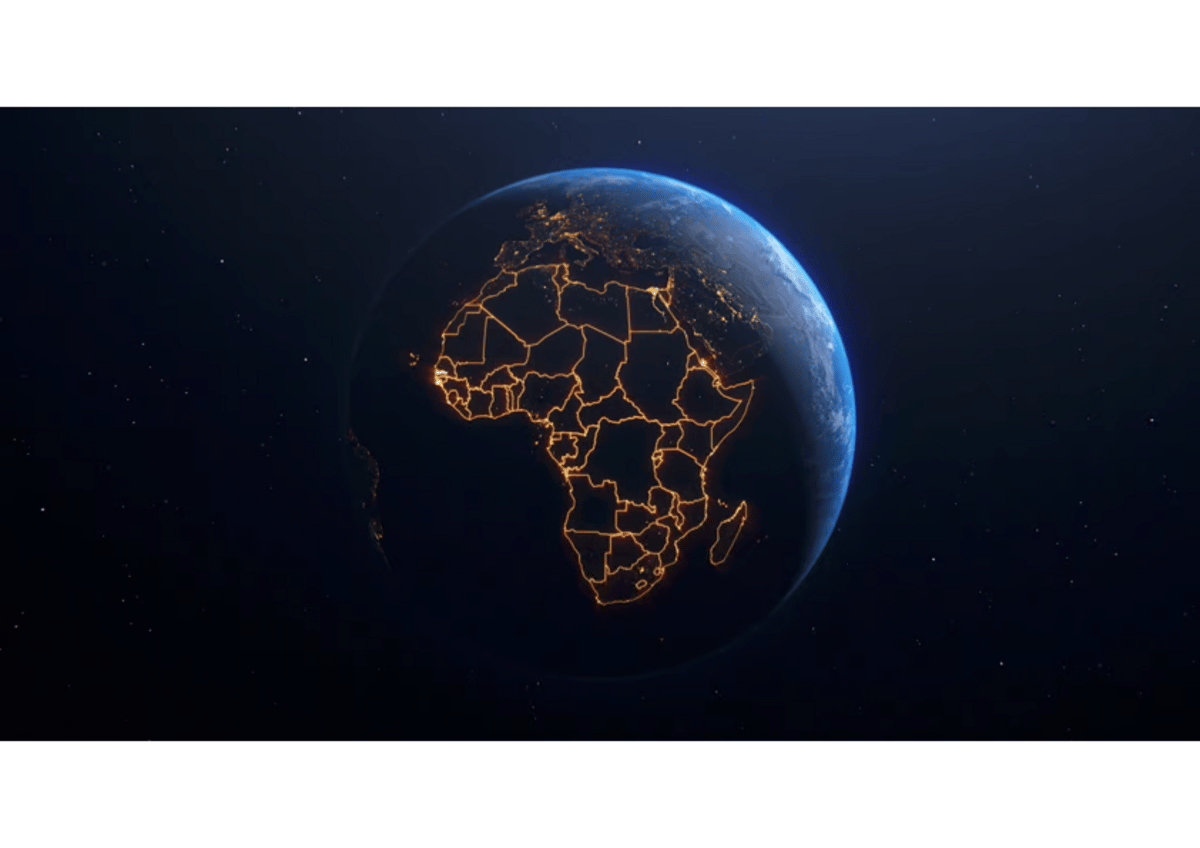Dear Friends,
Here is all you need to know for the events of this week!
Too Long; Didn’t Read
Angola. Despite its oil wealth, the country remains heavily indebted to Beijing (see more in our China section).
BRICS. During a meeting in Paris, President Macron invited himself to the BRICS summit in South Africa this August. Question marks still remain as to whether it will take place in SA or in China (Africa News).
DRC. In an interview with the Financial Times, Guy Robert Lukama, the new head of state mining company Gécamines said the Democratic Republic of Congo (DRC) has failed to leverage its dominance in cobalt production. He cited Indonesia’s sudden emergence as a rival cobalt supplier.
Food Insecurity. The World Food Program (WFP) lists seven countries in East Africa that are experiencing unprecedented levels of food insecurity, with some 60 million people not having enough food to survive (VOA).
Gas Prices. Following Wagner’s rebellion, oil prices on the continent increased — a consequence of uncertainties over Russia’s export capacity (Reuters).
Rwanda. The United Kingdom's court of appeal denied the government's plan to send asylum seekers to Rwanda (Guardian).
Senegal. French police prevented protests against Macky Sall, Senegal's President, during the New Global Financing Pact Summit. The country’s democracy, usually a bastion of good governance in West Africa, is on shaky footing.
Sierra Leone. Senior officials from Sierra Leone’s main opposition party accused the military of attacking their headquarters after weekend elections (New York Times). The country has since declared the elections over with the incumbent winning a second term.
Sudan. The RSF made a series of strategic gains in Khartoum, the country’s capital.
Wagner. The big question this week, what happens to Wagner operations in Africa? The Kremlin said the group’s activities in Africa will continue (Financial Times).
Graphic of the Week

Source: McKinsey & Company
In context: While Europe and China’s populations are due for a sharp decline over the next decades, Africa will soon have the world’s largest working-age population. A demographic boom presents the region with huge opportunities, such as meeting the global talent shortage via the provision of outsourcing services and training next-gen tech talent. Tech start ups training Africa's tech talent are already dotted around the continent from Andela to Semicolon Africa.
Business & Finance in Africa
What a week it was following the New Global Financing Pact Summit. To start, Mohamed Bazoum, the president of Niger, gave a fiery speech at the conference asserting African countries’ right to extract all the fossil fuel resources necessary to help them grow, as well as calling for a capital to do exactly that from IFIs.
In a split screen moment, the African Development Bank (AfDB) President Akinwumi Adesina said “coal is the past, and renewable energy is the future.” Despite this statement, the AfDB has committed more funding to gas developments across the continent. Critics say gas investment only puts Africa’s energy systems at risk of foreign ownership and direction.

Source: S&P Global
Staying in Paris, Kenyan President William Ruto called out multilateral development banks saying that “shareholder power is exercised in the national interest. The global common good is secondary. Moreover, the distribution of shareholder power is highly unequal.” Kenya has struggled in global capital markets to access cash without paying exceedingly high interest rates. The country is facing the prospect of not meeting its debt repayments due in 2024. This week the country voted on a number of tax rises in an attempt to raise 2.57 trillion shillings ($18.3 billion) in revenue to fund next year’s state budget (Reuters).

Source: Economist Intelligence Unit
Apparently answering Ruto's call, the International Monetary Fund has reached the $100 billion target in Special Drawing Rights for vulnerable countries.
China in Africa
Angola is a powerhouse in the world’s oil markets, pumping out thousands of barrels. Yet the country is in serious debt to Beijing. Angola has borrowed US$42.6 billion from Chinese lenders – more than a quarter of China’s total lending to African countries between 2000 and 2020. There are a number of ongoing multiyear billion dollar contracts with China for the building of massive infrastructure projects, including a mega-hydropower station in Cuanza Norte province (South China Morning Post).
Climate in Africa
The IMF announced that Rwanda and international development banks plan to raise an additional €300 million to help the country adapt to climate change (Reuters).
In recycling, Kubik, a company converting hard-to-recycle plastic waste (polyethylene, polypropylene, and polystyrene) into building materials in Kenya and Ethiopia, is leading plastic waste reuse and sustainability efforts in the continent’s nascent recycling sector (Techcrunch). To date, the African countries only salvage some 4% of waste produced.

Source: Statista
Note: Plastic waste generation projections worldwide from 2019 to 2060, by application (in million metric tons).
Democracy in Africa
Starting on Africa’s West Coast, Sierra Leone’s incumbent won the presidential election. President Julius Maada Bio will serve a second 5 year term after receiving 56% of the vote. The opposition rejected the outcome.
Mali has a new constitution following a majority vote in a referendum on the matter. The reforms pave the way to democracy. Concerningly, only 39% of Mali’s 8.4 million registered voters took part in the referendum, of which 97% voted in favor of the new constitution. Monitors from the Carter Centre, an NGO, expressed concerns over the vote tally, citing broken seals on ballot boxes.
Europe in Africa
The EU announced a multi-stakeholder collaboration to support Senegal’s energy transition.
Health in Africa
South Africa launched the National Health Insurance Bill. The NHI will fundamentally change how healthcare is delivered in the country with the government setting up its own medical aid scheme allowing patients access to private healthcare facilities. Proponents call it the great equalizer. Detractors say that state intervention will result in another example of poor governance, corruption, and incompetence — of which there are many examples in the country (just Google 'Eskom').
Peace & Security in Africa
Three parts this week. First on general matters, then Wagner in Africa, and finally, Sudan. Here goes. Top UN officials called for increased funding to address threats of climate shocks and resulting violence amid a looming food crisis in Somalia (UN News). In fact, all of East Africa is experiencing serious drought and food shortages.
On the West Coast, African leaders met in Angola’s capital, Luanda, to discuss strategies to stabilise a deteriorating security situation in the DRC. Leaders and independent experts warn that violence between rebels and the government in sub-Saharan Africa’s largest country could spread across the continent (Africa News).
Wagner
The Middle East Eye is reporting on the fallout for Africa from Wagner's tried and failed rebellion in Russia. The Economist reports that the Group has some 5,000 mercenaries and extensive business interests spanning all four of Africa's major regions. Meanwhile, numerous reports suggest that Russia’s government is trying to take direct control of Wagner’s foreign operations. For the time being, however, Foreign Minister Lavrov said Wagner operations in Africa 'will continue' (Voice of America).
Of particularly interest is Sudan where the Rapid Support Forces' (RSF) leader Mohamed Hamdan Dagalo, known as Hemeti, flew to Moscow just a day after Russia launched its invasion of Ukraine. According to CNN, Wagner has supplied the RSF with missiles to support them in their fight against the army. The Middle East Eye cites a meme circulating that showed Wagner forces dancing to Sudanese folk music with the caption, “the Russian janjaweed”, drawing a link between the mercenaries and the militia group the RSF formed out of.

Source: The Economist
Sudan
The RSF captured a police headquarters in Khartoum, Sudan’s capital. The paramilitary outfit claimed to have seized dozens of armored vehicles and tanks. Fighting between the RSF and Sudan’s army intensified over the weekend. An estimated 1.5m people have now fled the war since it began in April.
US in Africa
The US State Department slapped Wagner activities in Mali and CAR with sanctions. The announcement came with the following language, which is too forceful not to quote in full:
“The United States has also issued a new business risk advisory focused on the gold industry across sub-Saharan Africa. Specifically, this advisory highlights how illicit actors such as Wagner exploit this resource to gain revenue and sow conflict, corruption, and other harms throughout the region. Death and destruction has followed in Wagner’s wake everywhere it has operated, and the United States will continue to take actions to hold it accountable.”

